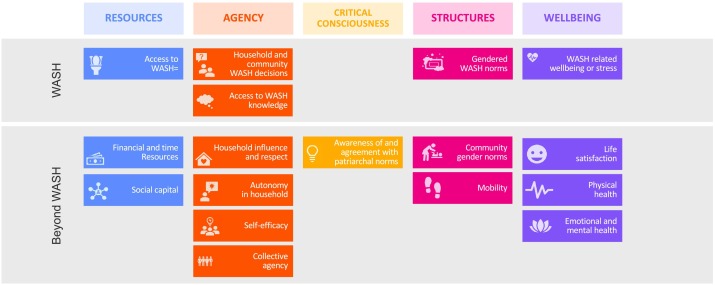Menstrual hygiene is not just a personal health issue; it is intricately linked to several of the United Nations’ Sustainable Development Goals (SDGs). The SDGs, established in 2015, are a set of 17 integrated goals that strive to end poverty, protect the planet, and ensure prosperity for all by 2030. Menstrual hygiene plays a significant role in achieving these targets, notably in the realms of health, education, gender equality, and sanitation. To start, SDG 3 aims to ensure healthy lives and promote well-being for all at all ages. Menstrual health is paramount to achieving this. Poor menstrual hygiene can lead to infections, reproductive health problems, and other complications. It is essential that all women and girls have access to the necessary information, sanitary products, and facilities to manage their periods safely and with dignity.
Similarly, SDG 4, which focuses on ensuring inclusive and equitable quality education, is directly impacted by menstrual hygiene. Many girls in low and middle-income countries miss school or drop out entirely because of a lack of facilities or products to manage their menstruation. The stigma surrounding menstruation also plays a role, with girls fearing embarrassment or ridicule. Thus, promoting menstrual health is pivotal to ensure that girls can continue their education uninterrupted, granting them better opportunities and a brighter future.
This leads us to SDG 5, which aims to achieve gender equality and empower all women and girls. Menstrual hygiene is undeniably a gender issue. In many cultures, menstruating women and girls are viewed as impure or are subject to restrictive customs, limiting their participation in everyday life. This discrimination hinders their social, economic, and political inclusion. Ensuring that all women and girls can manage their menstruation without shame or restriction is fundamental to achieving gender equality. Menstrual health education can also play a role here, dispelling myths and breaking down societal barriers.
Lastly, SDG 6 emphasizes clean water and sanitation for all. Proper menstrual hygiene requires access to clean water and adequate sanitation facilities. Women and girls need private spaces to change sanitary products, as well as access to safe disposal methods. In many areas, especially in impoverished communities, these basic necessities are lacking. This not only makes menstrual management difficult but can also lead to environmental degradation, as improperly disposed menstrual waste can pollute water sources and the broader environment.
Menstrual Hygiene Day 2024
Menstrual health is a fundamental aspect of human rights, dignity, and public health. Menstrual Hygiene Day, observed annually on May 28th, is dedicated to breaking taboos and raising awareness about the importance of good menstrual hygiene management (MHM). This year, SDG Resources is leading the charge to educate, empower, and transform the conversation around menstrual health.
The Importance of Menstrual Hygiene
Background: Menstrual health is essential for gender equality and achieving the sustainable development goals. Though currently lacking, understanding and addressing menstrual health and social related inequalities requires comparison of experiences between menstruators with and without disabilities. Methods: We completed a mixed-methods population-based study of water, sanitation and hygiene, disability and menstrual health in TORBA and SANMA Provinces, Vanuatu.
Management of menstruation, pregnancy prevention, and mitigation of gynecologic-related pathology in the space environment with or without the use of hormonal modalities requires thorough counseling and complex decision-making.


